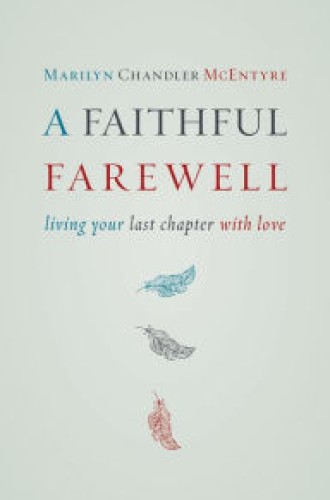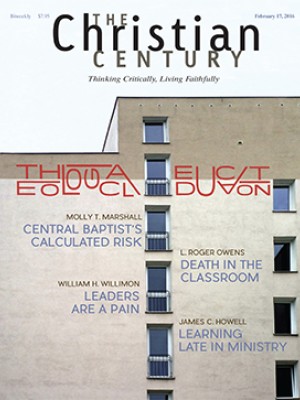Dying faithfully
"I need to talk to Reverend Heidi alone,” Roy announced to his wife, his family members, our deacon, and me. After everyone else left his hospital room, I sat down, wondering if he would tell me his fears about dying or that he had felt a loved one’s presence in his room. Instead, he methodically listed the details of the funeral he wanted: a veteran’s honor guard on motorcycles, the Episcopal Rite I burial liturgy, and his favorite gospel-style “Amen” at the end of the service.
As family and clergy we may be tempted to assume we know the needs of those who are dying, but more often than not we can’t anticipate what they are feeling or what is most important to them in their final days. We are still learning how to talk about dying well in North America. As Marilyn Chandler McEntyre puts it, “Wanting ‘what is best,’ we are sometimes at a loss about how to discern what ‘best’ might be.” We don’t know what additional treatment to pursue, which guests to allow to come visit, or what to talk about during visits.
Read our latest issue or browse back issues.
Drawing on what she learned during her years as a hospice volunteer and on her experiences of the deaths of her own family members, most poignantly her daughter and her elderly mother, McEntyre has written two books that offer accompaniment, guidance, and prayer for the painful gift of such times.
The first book of this duo, A Faithful Farewell, is written for someone facing death, and the second, A Long Letting Go, is for someone accompanying the person who is dying. Each chapter in both books opens with a verse from scripture or a literary quote and ends with a prayer.
Faithful Farewell includes a line or two from a hymn as well. McEntyre wrote these books in such a way that readers can dip into them and consult them as needed. In Faithful Farewell, the reader might choose a chapter that suits the challenges of a particular day; titles include “Am I a Fighter?” “Boredom,” and “Other People’s Pain.” Letting Go is ordered differently, with three sections: “Accompanying,” “Witnessing,” and “Mourning.” Its chapter titles are not as specific as those in Faithful Farewell. Each book includes an appendix of prayers.
McEntyre’s language is reflective and sensitive but not sentimental. This is most welcome. The books are both theological and practical. McEntyre quotes from a wonderful variety of literary writers: Shakespeare, Jonathan Edwards, Willa Cather, T. S. Eliot, C. S. Lewis, Toni Morrison, Denise Levertov, Wendell Berry, Desmond Tutu. She writes beautifully of denial, forgiveness, eternity, heaven, and grace. And she offers moving observations, such as “Being cared for is the first—and last—practice of living in community”; “All deaths, even those that come at the end of a long, full life, leave some sense of incompletion . . . because we are created for eternity”; and “Like childbirth, dying is a kind of labor.”
She also writes practically. There is a suggested to-do list for friends who have offered to help, which can inform both well-meaning friends and a patient who is not sure what to ask for. Both books are unafraid to speak to the mundane but very real facts of life for the dying, like nausea, backlogged e-mails, and the drudgery of hospital paperwork. McEntyre uncovers grace in these quotidian tasks of dying, things that may “anchor us to the ordinary in ways that help us act when grief seems almost paralyzing.”
McEntyre wrote Faithful Farewell in the first person to give the chapters immediacy and “to make them more a sharing of a common condition than advice.” However, by doing so McEntyre risks alienating some of her readers because of the presumptions she sometimes makes. For instance, she writes, “That I have insurance is a comfort,” but not all of her readers will be so fortunate. Some of her suggested first-person reflections can feel preachy or passive aggressive: “My job is . . . to meet each person’s sorrow with generous imagination for what my dying might mean for them”; “I need to forgive, as deliberately and fully as I can”; and “I have a chance now to reach a new level of honesty.”
Nonetheless, these books would be sensitive and excellent gifts for friends, family, or church members facing the slow but steady approach of death. They offer a thoughtful and realistic window into the often hidden, though well-traveled, end-of-life journey.







